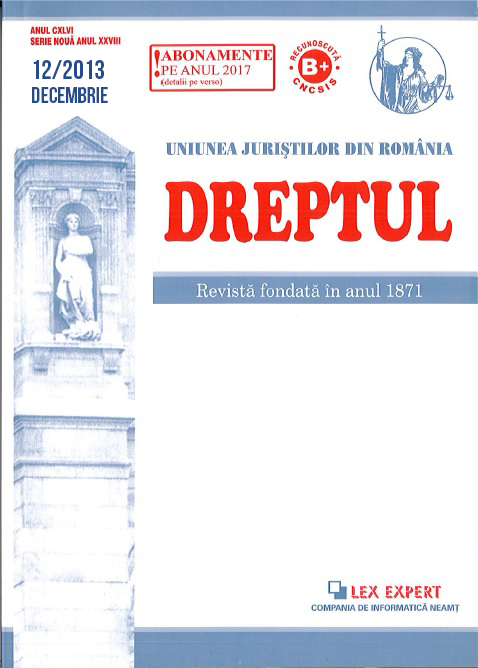The author analyzes the legal status of undue payment, regarded as a source of civil obligations, such as they results in the texts of the new Civil Code. It has been specified since the beginning of the study that in general no essential amendments were reported in relation to the definition and existence conditions of this legal deed. However, it is noted as a novelty that the rules of undue payment in the new legislative environment apply also when the payment consists of the provision of services or execution of works. Likewise, the new Civil Code, unlike the old regulation, does not set forth anymore expressly the condition that the payment be made in error by solvents; however, the author argues, with convincing arguments, that the error of solvens is usually an actually relative prerequisite of the undue payment. A large space is given to the obligation to reimburse the undue payment and the rules applicable to it regarding the existence, the limits and its manner of execution. Most of these rules are located in a separate title of the Civil Code (Art. 1635 to 1649) and apply, with some exceptions, to all reimbursement obligations, regardless of their source. The author notes that, in their content, these rules contain many new elements compared to the old Civil Code, which tries and manages to examine carefully, formulating relevant solutions and answers.


